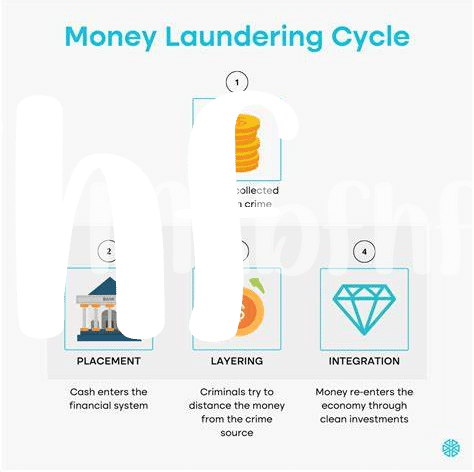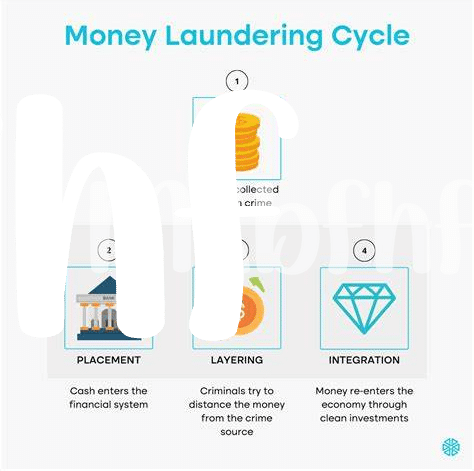Regulatory Uncertainty 🚫

Navigating the ever-changing landscape of regulations can be like walking through a maze with shifting walls. The uncertainty surrounding compliance requirements adds a layer of complexity for South African Bitcoin startups, forcing them to constantly adapt and stay alert to avoid potential pitfalls. This regulatory uncertainty not only hampers operational efficiency but also introduces a level of unpredictability that can impact business decisions and long-term sustainability.
Compliance Costs 📉
When it comes to navigating the challenges of compliance costs in the realm of AML for South African Bitcoin startups, financial considerations play a pivotal role. Ensuring adherence to regulations can significantly impact the financial health of these budding businesses, often requiring substantial investments in resources and tools to remain compliant. The intricate balance between meeting regulatory requirements and managing costs is a delicate tightrope that startups must traverse to sustain their operations effectively. This financial burden can create hurdles for startups aiming to compete in the dynamic cryptocurrency landscape while upholding AML standards, underscoring the importance of strategic financial planning and allocation of resources.
As South African Bitcoin startups grapple with the complexities of compliance costs, the need for efficient financial strategies becomes paramount. Balancing the expense of compliance with the imperative to uphold AML regulations is a multifaceted challenge that necessitates careful financial planning and resource allocation. In the face of evolving regulatory landscapes and increasing scrutiny, startups must devise strategies that not only ensure compliance but also foster financial sustainability to thrive in a competitive market environment. By addressing compliance costs proactively and innovatively, startups can position themselves strategically within the AML framework while securing their financial viability for long-term success.
Lack of Aml Expertise 🧠

Navigating the complex landscape of AML requirements can be particularly challenging for South African Bitcoin startups due to a lack of expertise in this area. Understanding the intricacies of anti-money laundering measures and how they apply to cryptocurrency transactions requires specialized knowledge that may not always be readily available. Without the necessary expertise, startups may struggle to develop robust compliance practices, leaving them vulnerable to potential regulatory issues. Investing in training and development opportunities for team members to build AML competency can be key to addressing this gap effectively.
Pressure from Financial Institutions 🏦

Bitcoin startups in South Africa face significant pressure from financial institutions when it comes to Anti-Money Laundering compliance. These institutions often require stringent measures and reporting standards, adding to the complexity and cost of staying AML compliant. Startups find themselves navigating a challenging landscape of regulations and requirements set forth by these institutions, which can impact their operational efficiency and growth. Managing this pressure while maintaining compliance standards is crucial for the success and credibility of these startups in the eyes of the broader financial ecosystem.
Link to bitcoin anti-money laundering (aml) regulations in Slovenia: bitcoin anti-money laundering (aml) regulations in Slovenia
Customer Privacy Concerns 🔒
Customer privacy concerns are a key issue for South African Bitcoin startups as they navigate the challenges of AML compliance. With increasing focus on data protection and confidentiality, startups face the delicate balance of providing transparent services to customers while safeguarding their information from potential breaches. Implementing robust privacy policies and encryption techniques is crucial to establishing trust with users wary of sharing personal data in the digital realm. By addressing these concerns proactively and demonstrating a commitment to protecting customer privacy, Bitcoin startups can differentiate themselves in the market and build a loyal user base.
Training and Education Gaps 🎓

Training and Education Gaps 🎓 pose a significant challenge for South African Bitcoin startups in navigating AML compliance. Without proper education and training opportunities, these startups may struggle to fully grasp the complexities of AML regulations and implement effective compliance measures. Addressing this gap is crucial to ensure that startups have the knowledge and skills needed to protect their businesses and comply with regulations in the ever-evolving crypto landscape. Providing accessible and targeted training programs can empower startups to proactively address AML challenges.
Insert the link for bitcoin anti-money laundering (aml) regulations in Serbia with anchor bitcoin anti-money laundering (aml) regulations in Senegal:bitcoin anti-money laundering (aml) regulations in Senegal.
